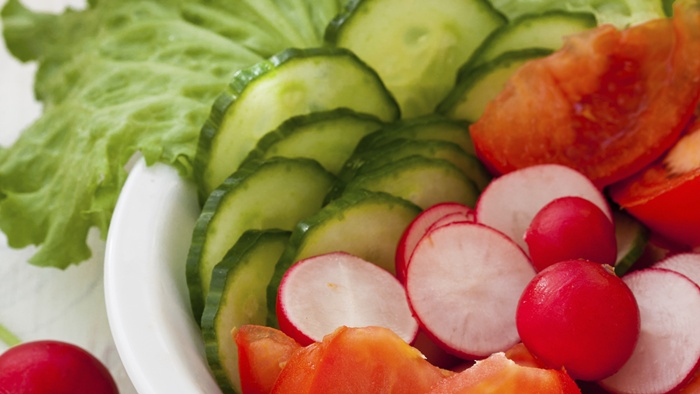
Your diet is a very personal thing. Every journey is different and I like to respect the choices people make. Learning what works for you and your health with all of the available choices can be a challenge. You’ll make discoveries along the way and there’s certain to be highs and lows. One example is veganism, a diet free from dairy, eggs, meat, poultry, fish and seafood. Vegans consume only plant foods such as vegetables, grains, legumes (beans and peas), fruits, nuts and seeds.
There are many reasons people decide to become vegan and good intentions tend to drive the decision. It may be for moral reasons. Eating factory-farmed animals doesn’t sit right with them because of the slaughtering process or “factory” conditions. On the other hand, people may choose a plant-based vegan diet to support their health and they may find they feel more energetic as a result.
Veganism Can Boost Your Health
When I did the transition from vegetarianism to a part-time vegan diet, I started by using very little feta and goat cheese and cutting back on how many eggs I was eating. Although I found the vegan diet wasn’t working for me, it did help me to reflect on my healthy eating decisions as a whole, giving me a fresh outlook. If you’re considering making the change to more meatless meals or becoming a full-on vegan, here are some things to get your head around before you make the shift.
I’ve found that the majority of vegans choose the diet because of moral reasons, but there are a lot of great health and nutritional benefits, too! Getting to know the pros and cons will help you to make the right choice for you.
Abundance of Plants
One big advantage for vegans is the elimination of processed foods and an emphasis on fruit and vegetables. When you cut out all the fake foods from your diet you can experience high-quality nutrition from raw fruits and vegetables. The empty calories, fat and sugar that go along with processed foods are gone, too, meaning you could experience weight loss as an added benefit.
Lower Your Risk of Cardiovascular Disease
A 2013 Adventist Health Study from the University of Oxford found that vegetarians are 32% less likely than meat and fish eaters to have death or hospitalization from heart disease. Vegans, vegetarians and pesco-vegetarians (who do eat fish) had 12% reduced mortality than non-vegetarians after a six-year follow up. Bonus!
Reduce the Risk of Diabetes
The vegan diet can help manage and prevent type 2 diabetes, thanks to the focus on foods that are low on the glycemic index. The glycemic index is a way to chart how quickly blood glucose levels rise after eating a meal. Foods such as nuts, plant-based proteins, fruits and whole grains rate low on the index. In the Adventist Health Study, 60,000 men and women on the vegan diet were one-third less likely to have diabetes than non-vegetarians.
Nutrient Deficiencies
A vegan diet comes with its own set of health risks. Some of the most common nutrient deficiencies include vitamin B12, iron, calcium and protein. Having blood work done is important to check for deficiencies, along with trying to boost your intake of these nutrients. The problem is that plants don’t make vitamin B12. The only foods that deliver it are meat, eggs, poultry, dairy products and other foods from animals. As Harvard Medical School notes, “Vegans are at high risk for developing a B12 deficiency if they don’t eat grains that have been fortified with the vitamin or take a vitamin supplement. People who have stomach stapling or other form of weight-loss surgery also are more likely to be low in vitamin B12 because the operation interferes with the body’s ability to extract vitamin B12 from food.”
The diet is also not recommended for women looking to have a baby; a child may have long-term health problems if the mother lacks B12 during pregnancy or nursing.
How’s Your Mental Health?
Vegetarians are also known to be deficient in creatine and omega-3 fatty acids containing docosahexaenoic acid (DHA)—nutrients related to brain function. The lack of these nutrients and vitamin B12 could explain why studies have linked anxiety, depression and eating disorders with vegetarian diets. Many vegans and vegetarians try to get omega-3 from flaxseed oil; however, the omega-3 plant-based form, alpha linolenic acid (ALA), doesn’t convert DHA efficiently in the body. There are vitamin B12 and algae-based DHA supplements that can help.
Bone Mineral Density
Protein, iron, calcium and vitamin D are essential for bone and muscle development. A study published in the American Journal of Clinical Nutrition found that vegetarians had 5% less bone mineral density than those who ate meat. That 5% counts, especially as you get older. Vegan diets in particular are associated with bone mineral density issues because they don’t allow for common sources of vitamin D, such as eggs.
So there are pros and cons, and I’ve been there and back. I have always felt your diet is about what you are comfortable putting into your body. If you’re committed to veganism, with the right intentions and a little education on how to supplement your nutrition, it can work to your advantage.
Sources:
Handler, J., “Side effects of becoming vegetarian,” Mother Nature Network website, May 2, 2012; http://www.mnn.com/food/healthy-eating/stories/side-effects-of-becoming-vegetarian.
Marsh, K., “Vegetarian Diets and Diabetes,” Medscape website; http://www.medscape.com/viewarticle/739101_2, last accessed April 24, 2014.
Deans, E., “You’re a Vegetarian. Have You Lost Your Mind?” Psychology Today website, Nov. 11, 2012; http://www.psychologytoday.com/blog/evolutionary-psychiatry/201211/youre-vegetarian-have-you-lost-your-mind.
“Vegetarian diet for health problems,” Vegetarian Society website; https://www.vegsoc.org/veggiedietforhealthproblems#, last accessed April 24, 2014.
“Vegetarianism can reduce risk of heart disease by up to a third,” ScienceDaily website, January 30, 2013; http://www.sciencedaily.com/releases/2013/01/130130121637.htm.












